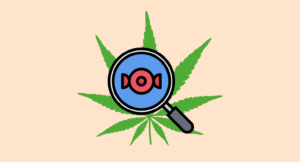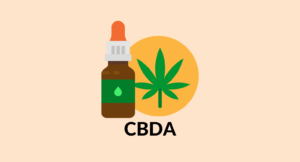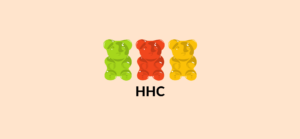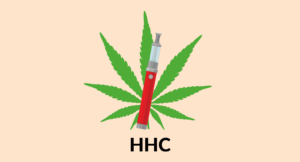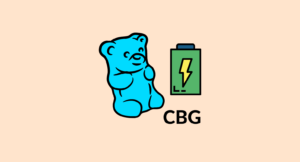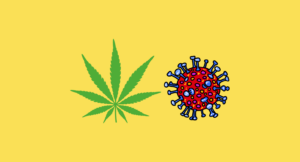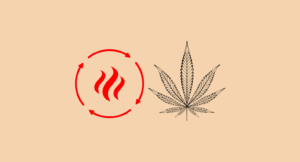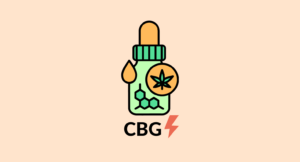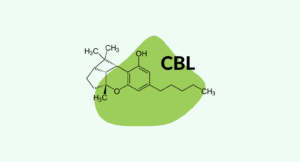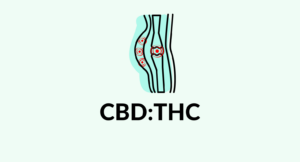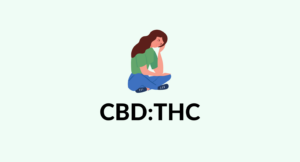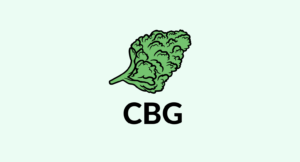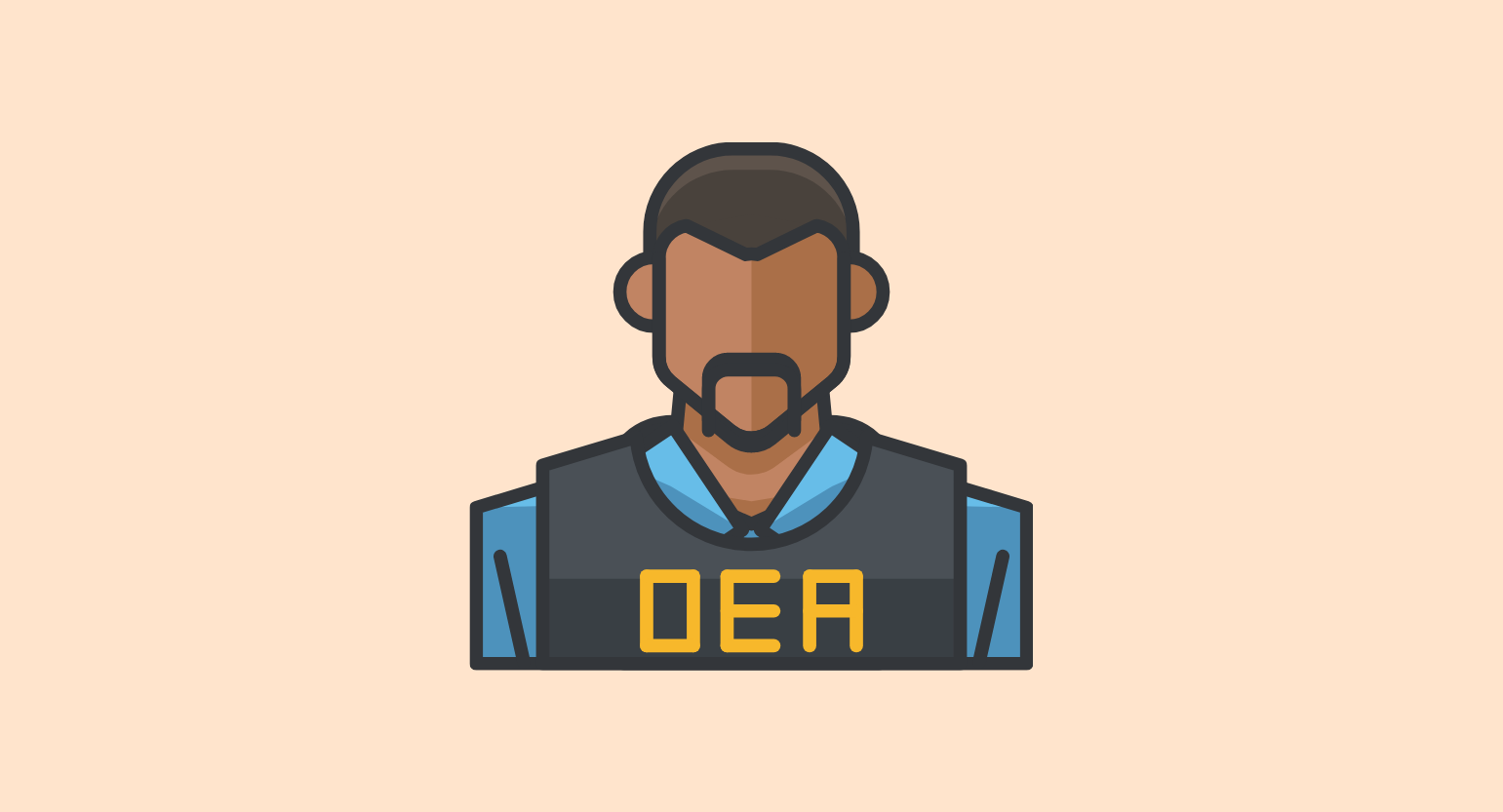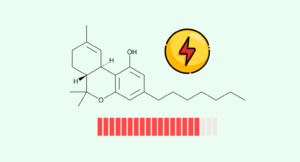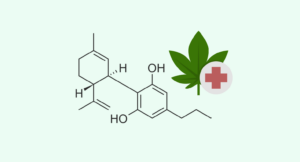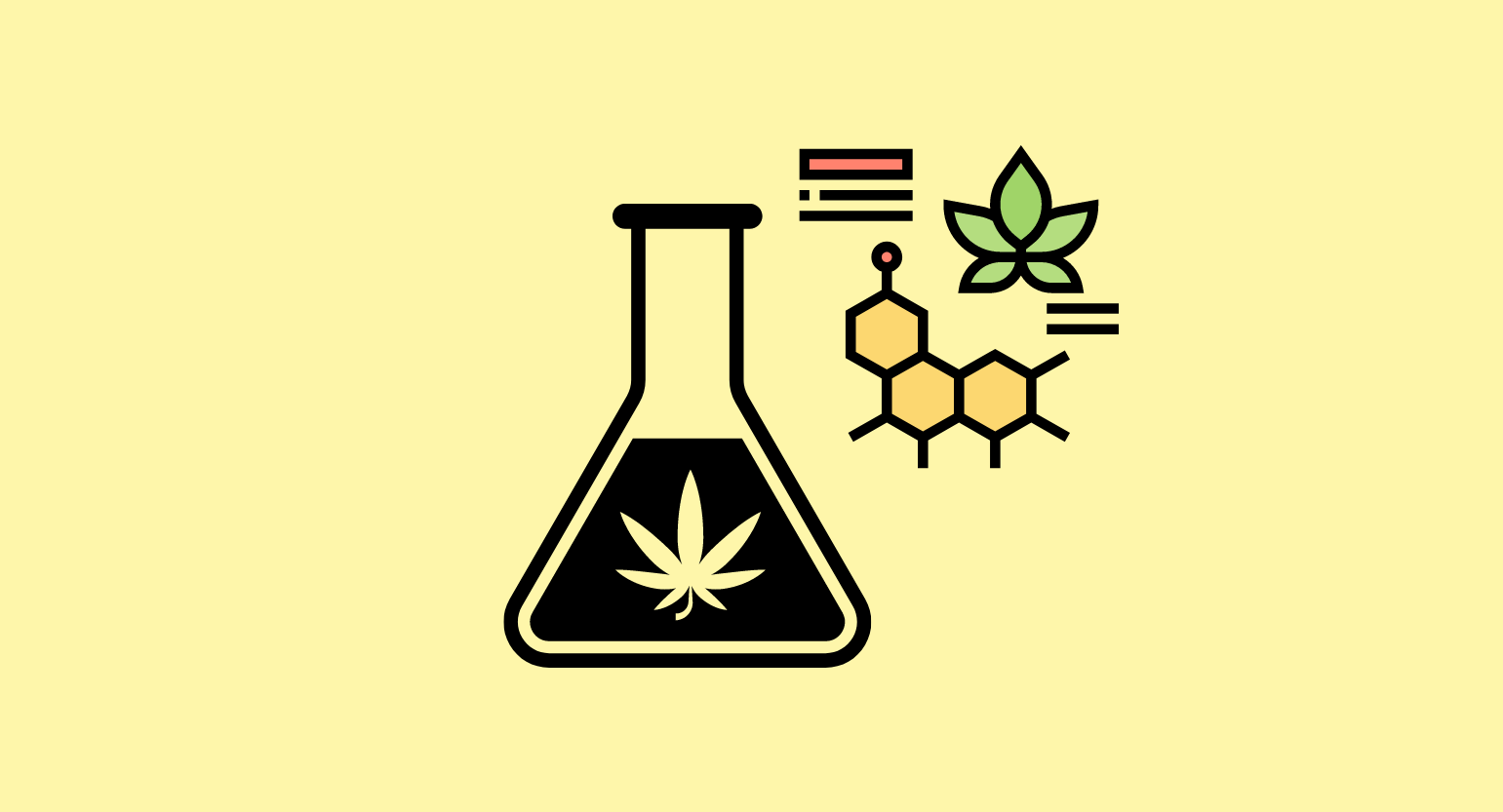
Evidence based
THCa vs. THC: What’s The Difference?
THCa stands for THC-acid — it’s the non-psychoactive version of THC.
Have you ever wondered why you don’t get high from eating raw cannabis flowers?
That’s because raw cannabis doesn’t have high levels of THC but is instead rich in THCa — which isn’t psychotropic.
In order to become psychoactive, THCa needs to be converted to THC — which is usually done by exposing it to high heat (such as a lighter or vaporizer).
In this article, we’ll get into the differences between THCa and THC and their potential benefits.
What Is THCa?
THCa stands for tetrahydrocannabinolic acid, which is the parent cannabinoid of THC (both delta 9 THC and delta 8 THC). THCa isn’t the only cannabinoid acid—there’s also CBGa, CBDa, and CBCa.
THCa and other cannabinoid acids must be exposed to heat or UV light to initiate “decarboxylation” to become their more biologically active forms.
The heat breaks off a carboxylic acid group from the THCa molecule structure, transforming it into THC.
CB1 receptors in our central nervous system are much more receptive to THC than THCa, which is why we’re able to experience the high from smoking THC and not by eating it raw.
Methods Of Activating THCa Into THC (Decarboxylation)
There’s more than one way to decarboxylate THCa — here are the four most common:
1. Sunlight (UV Exposure)
THCa will eventually turn into THC through exposure to natural elements like heat and sunlight.
The UV light will also degrade the THC into CBN and delta 8 THC over time.
2. Smoking
Smoking the herb is the most straightforward approach to activating THCa and breaking off the carboxylic chain.
The flame rapidly converts THCa into THC — however, not all THCa converts over to THC in this process.
You risk burning some of the cannabinoids and destroying them.
3. Vaping
Vaporizing is the most efficient way of decarboxylating whole dried marijuana or delta 8 flower.
We’re not talking about vape juices and e-liquids. You want dried herb in a vaporizer device with controlled heat settings that get hot enough to activate the cannabinoids and terpenes without burning the plant matter itself.
4. Cooking
The most common way manufacturers decarboxylate large amounts of THCa into THC is to cook it in large batches.
The raw THCa-rich hemp extract has a thick, sticky, resinous consistency which is placed in a large heating vat where it’s cooked. The temperature and duration depend on the manufacturer.
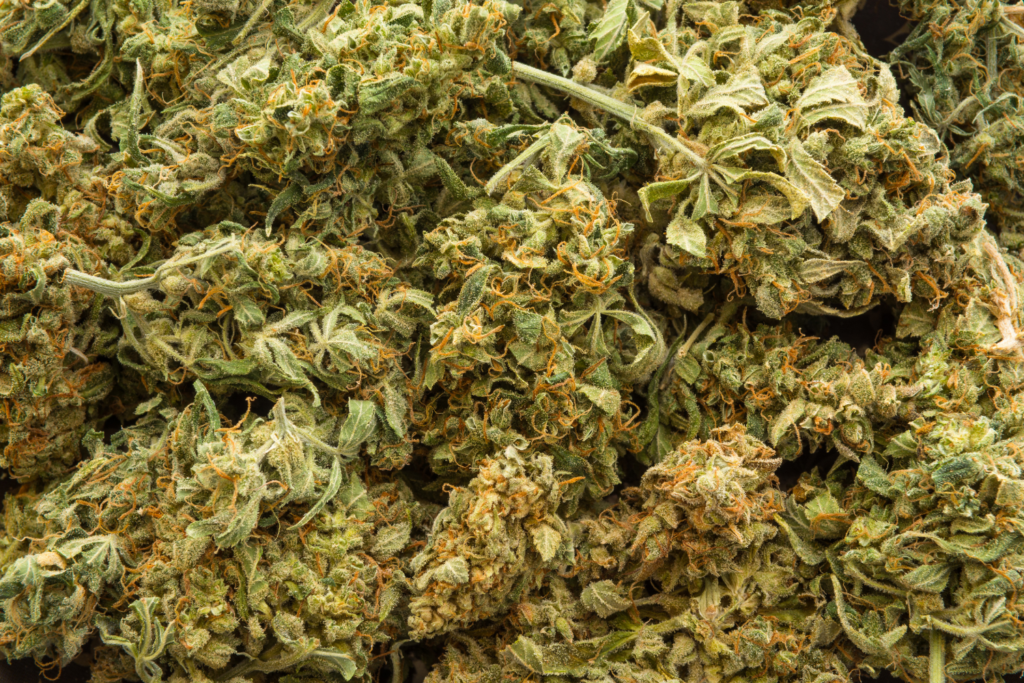
The Potential Benefits Of THCa
THCa is a poor agonist to the CB1 receptors compared to THC — which is why it doesn’t cause intense euphoria or changes of perception, but that doesn’t mean it’s not doing something in our system.
Although THCa doesn’t have intoxicating effects, many people consider raw cannabis buds to be a superfood — you can juice cannabis, add it to smoothies, or use a ground powder as a health supplement.
Some of the investigated benefits of THCa include:
- Anti-inflammatory. THCa has been shown to reduce the production of inflammatory markers and regulate inflammation pathways in preclinical trials helping to reduce inflammation and pain [1, 2].
- Neuroprotective. THCa can bind and activate PPARγ receptors (which regulate sugar involved in energy homeostasis and oxidative stress) in mice at high doses better than other decarboxylated cannabinoids, which improved motor function and slowed down neurodegenerative disease symptoms [3].
- Antiemetic. THCa was found effective in reducing nausea and increasing the appetite in male rat subjects through its interaction at serotonin receptor sites [4].
- Anti-Proliferative. THCa may inhibit cancer cell growth in pancreas tumor cells in preclinical studies [5].
There isn’t enough research specifically looking at the effects of THCa’s pharmacology.
However, the success of these preclinical trials shows a lot of promise for raw cannabis’ future in medicine.
What Is Stronger: THCa vs. THC?
It’s hard to tell which compound is more potent because THCa isn’t as obvious as THC. Taking THC results in a euphoric high and changes in senses and perception, you don’t get this with THCa, but it doesn’t mean it’s having any effect.
According to some studies, it takes lower doses of THCa to exert its effects, but this isn’t very clear since THCa doesn’t have prominent effects.
Other Types of THC
There are many different types of THC, each one has an acid version of the molecule.
- Delta 8 THC — This trendy version of THC is heralded for it’s more chilled-out, relaxing effects. Delta-8-THCa theoretically exists, but you’ll be hard-pressed to find it.
- Delta 9 THC — This is the most common form of THC, and the type people refer to when mentioning “THC”.
- Delta 10 THC — D10 is similar to delta 8, only a little more stimulating and energizing.
- THCP — This form of THC is the strongest THC isomer currently known. It’s thought to be up to 33 times stronger than delta 9 THC.
- THC-O — This is a synthetic version of THC. It’s the non-acidic version of delta 9 THC with an o-acetate group attached to improve the bioavailability of the molecule.
- THCC — This form of THC is more similar to CBD. It’s entirely non-psychoactive.
- HHC — This cannabinoid is the hydrogenated form of THC. It doesn’t come in a decarboxylated form and is entirely man-made.
Is THCa Legal?
The Food And Drug Administration doesn’t list THCa as a federally banned substance. However, THCa can be interpreted as an analog of THC, and its possession could be illegal, depending on the state you live in.
Does THCa Show Up On A Drug Test?
Drug testing looks for metabolites of the compound in your system. The liver metabolizes both THCa and THC into THC-COOH.
Regardless of the form of THC you took, legal or otherwise, it may trigger a positive test result.
Related: Will CBD Oil Make Me Fail a Drug Test?
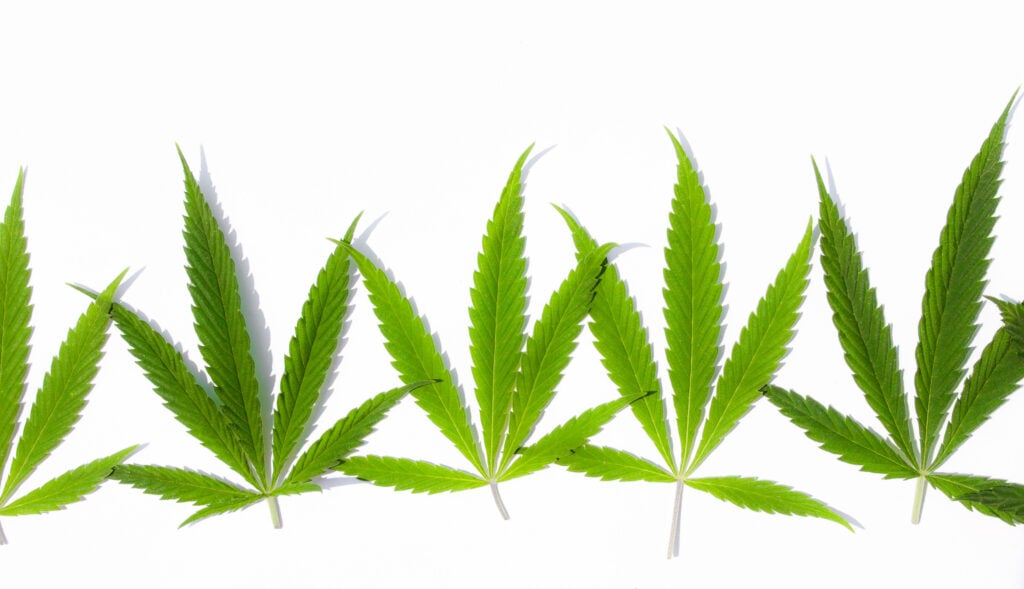
The Takeaway: THCa vs. THC
We’re living in a cannabis renaissance, and with the stigma surrounding cannabis slowly collapsing, we’re finding more and more potential uses for the plant’s many active compounds.
THC is the most notorious compound because of its mind-altering effects, but it turns out its precursor molecule, THCa, has been shown to contribute to many similar health benefits without inducing psychotropic effects.
However, since THCa is one lighter spark away from converting into THC, it remains an illegal substance federally.
If you are subject to drug testing, we’d still stay clear from THCa too. Drug tests look for metabolites of a compound, and THCa looks a lot like THC-COOH, which is what they’re testing for.
There’s still a lot more we’d need to learn from THCa in clinical and preclinical trials, and the research we currently have available is promising but not definitive in its health benefits and potential uses. That still hasn’t stopped many cannabis entrepreneurs from creating unique products featuring THCa to stay ahead of the curb.
As always, purchase your THCa and THC products with caution, check your local laws, read the certificate of analysis by a third-party lab, and verify the company’s hemp sourcing. Happy shopping!
References
- Ruhaak, L. R., Felth, J., Karlsson, P. C., Rafter, J. J., Verpoorte, R., & Bohlin, L. (2011). Evaluation of the cyclooxygenase inhibiting effects of six major cannabinoids isolated from Cannabis sativa. Biological and Pharmaceutical Bulletin, 34(5), 774-778.
- Palomares, B., Garrido‐Rodriguez, M., Gonzalo‐Consuegra, C., Gómez‐Cañas, M., Saen‐oon, S., Soliva, R., … & Muñoz, E. (2020). Δ9‐Tetrahydrocannabinolic acid alleviates collagen‐induced arthritis: Role of PPARγ and CB1 receptors. British journal of pharmacology, 177(17), 4034-4054. Chicago
- Nadal, X., Del Río, C., Casano, S., Palomares, B., Ferreiro-Vera, C., Navarrete, C., Sánchez-Carnerero, C., Cantarero, I., Bellido, M. L., Meyer, S., Morello, G., Appendino, G., & Muñoz, E. (2017). Tetrahydrocannabinolic acid is a potent PPARγ agonist with neuroprotective activity. British journal of pharmacology, 174(23), 4263–4276.
- Rock, E. M., Sullivan, M. T., Pravato, S., Pratt, M., Limebeer, C. L., & Parker, L. A. (2020). Effect of combined doses of Δ 9-tetrahydrocannabinol and cannabidiol or tetrahydrocannabinolic acid and cannabidiolic acid on acute nausea in male Sprague-Dawley rats. Psychopharmacology, 237(3), 901-914.
- Aizikovich A. (2020). Anticancer Effect of New Cannabinoids Derived from Tetrahydrocannabinolic Acid on PANC-1 and APC-1 Human Pancreas Tumor Cells. Journal of pancreatic cancer, 6(1), 40–44. https://doi.org/10.1089/pancan.2020.0003
